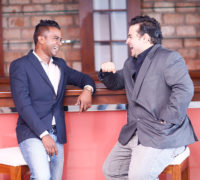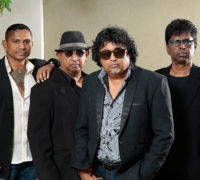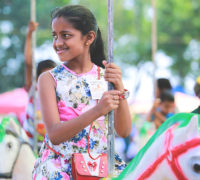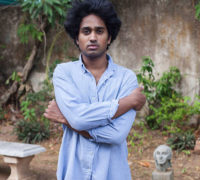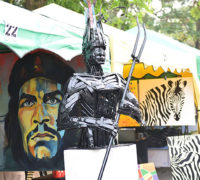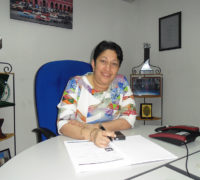Whether you’re stuck in traffic or you’ve had a bad start to your day, the Morning Fix hosted by Dom and Asanka would surely turn that frown upside down. Their sense of humour is undeniably a positive fix for your morning and I must say that it was an absolute pleasure to interview the merry combo. Tune in to Yes FM 101.0 from 7am to 10am to get your ‘Morning Fix’!!
What led to the collaboration of Dom and Asanka?
We met in late 2008 which was when we started acting in Pusswedilla together. It was the team at Yes FM which brought us together. We first began with the Evening Show and thereafter went on to do the ‘Morning Fix’ from August 2015.
What is life like for a radio personality?
We wouldn’t consider ourselves as regular radio personalities because have several things we do apart from radio. The radio industry is small, yet it is cut-throat and competitive. However, we try to keep it real, mellow, light and not too over the top.
It’s a known fact that you’ll get on very well but are there times that you’ll don’t?
Of course there are! In any partnership you get disagreements but it has never led to a fight or argument. Although we are friends, we have very different views on a lot of things. We would say we complement each other.
What do you’ll get up to apart from the ‘Morning Fix’?
There are a lot of things we get up to that cannot be mentioned publicly!!
Asanka: I love to drive and travel whereas Dominic is the complete opposite – hates driving or being on the road. If we plan a trip, we would come to a compromise where I would drive and Dominic would get to sleep the entire way. Once we get to our hotel, Dominic would find his spot in front of the TV!!
We also do a lot of things together because we have a large circle of mutual friends.
On an off day, however, we’d prefer to be at home or someplace quiet where we don’t have to deal with the public or be social as that is what our job entails us to do anyway.
Work wise, what do you’ll do besides radio?
Asanka: I sing and produce music as a solo artist. I am also a part of ‘Glory’, an existing band, asked me to join them and lead the frontline. I also do a lot of compering and voice over work.
Dominic: I started my own arts trust called ‘Identities Inc.’ with a group of friends. It is a theatre group, for lack of a better word! We create a lot of productions and do corporate work – like corporate training and theatre based work. When I’m not working on radio, I’m at home writing scripts. I am also involved in compering work. I used to be a Quiz Master and a Pub Crawl host but not anymore. Now, most of my work revolves around drama and radio.
Most memorable moment on the show?
The most memorable moment was our Second Anniversary. We celebrated our partnership of two years on radio together on 2nd February 2017. Although no one really celebrates a second anniversary on such a large scale, we decided to do it nonetheless and we were overwhelmed by the fact that our fans made a huge deal about it – sending wishes, cards, text messages and calls! It made us realize how many people listen to our show and how much they care about our combination. By far, the best day we’ve had!!!
30th December 2016 was also fun. It was this one time we partied for two days straight.
Our producers and boss also make it memorable.
Top 5 favourite songs of all time?
Asanka: I listen to music from the 50s onwards and sing English and Sinhalese songs from every single decade up until now, so it’s tough for me to choose a few favourites.
Dominic: This is a very tough question – this is like asking an actor what his favourite movie is!
Do you feel that ‘Dom and Asanka’ is here to stay?
We realised that – last month, after our second anniversary – that it’s something fun and something to look forward to. We never know where life will take us but we’re certainly not the type of people who would pack up and leave and join somewhere else. We’re happy where we are and we’ve built so much of credibility and would never want to betray our fans.
For the record, we love coming to work for the show. There are times we’re sick or tired or have had long nights and barely any sleep but we still show up for work. Even in the middle of all the fun, we would always remind each other that we have the Show in the morning and call it a night. We have given the Show priority. When we first started, the management wasn’t really sure about how this would go or last and thus, was very weary. Yet, now they have so much faith in us that it worries us sometimes because we don’t have as much faith in ourselves at times.
The management has been very helpful. Nowhere has there been this much faith and support.
We do our very best for the show and are very committed.
